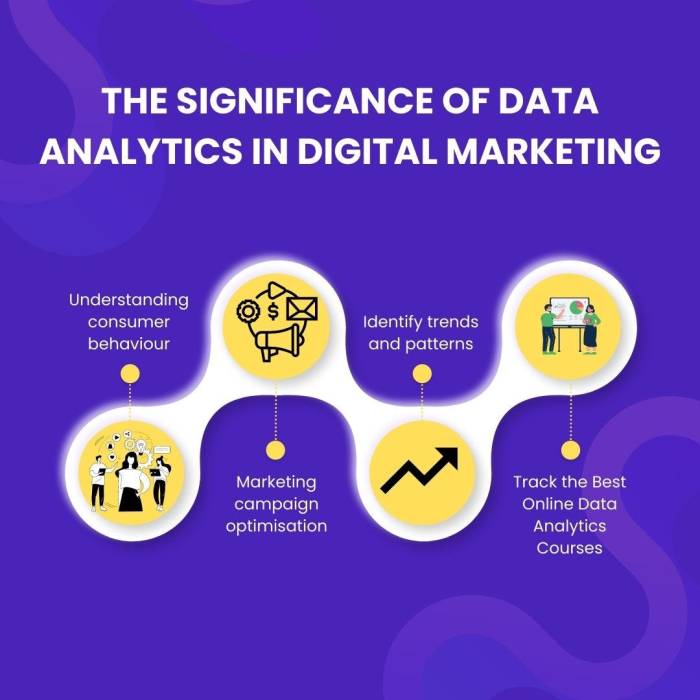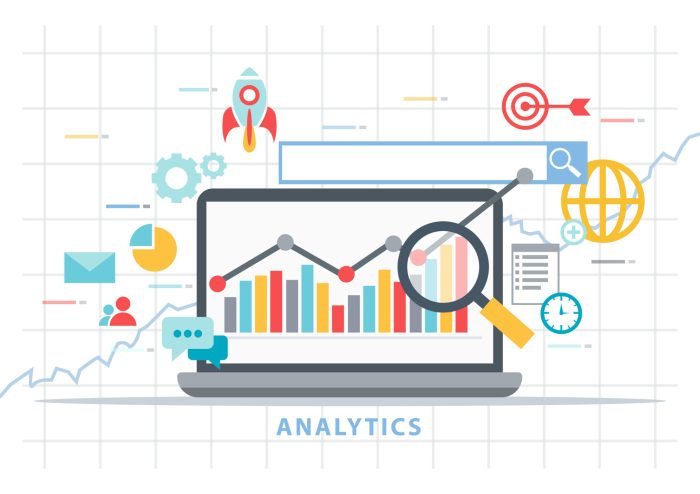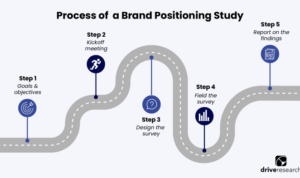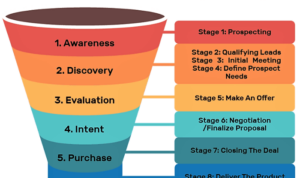Using Data Analytics in Digital Marketing opens the doors to a whole new world of possibilities, where insights drive strategies and decisions in the ever-evolving digital landscape. Dive into the realm of data-driven marketing and discover the key to unlocking your brand’s true potential.
Understanding Data Analytics in Digital Marketing
Data analytics plays a crucial role in digital marketing by helping businesses analyze and interpret data to make informed marketing decisions. By leveraging data analytics, companies can gain valuable insights into consumer behavior, campaign performance, and overall marketing effectiveness.
The Role of Data Analytics in Digital Marketing, Using Data Analytics in Digital Marketing
Data analytics enables businesses to track, measure, and analyze various metrics to understand the impact of their marketing efforts. By collecting and analyzing data from different sources such as website traffic, social media engagement, email campaigns, and online sales, companies can optimize their marketing strategies for better results.
- Website Traffic: Businesses can track the number of visitors to their website, where they come from, and how they interact with the site. This data helps in understanding user behavior and preferences.
- Conversion Rates: Data analytics allows companies to measure the effectiveness of their marketing campaigns in converting leads into customers. By analyzing conversion rates, businesses can identify areas for improvement and optimization.
- Customer Engagement: Tracking metrics such as click-through rates, open rates, and social media interactions helps businesses gauge customer engagement with their marketing content. This information can be used to tailor marketing messages to better resonate with the target audience.
- Return on Investment (ROI): Data analytics provides insights into the ROI of marketing campaigns by monitoring key metrics like cost per acquisition, customer lifetime value, and revenue generated. This helps businesses allocate resources more effectively and maximize their marketing budget.
Implementing Data Analytics Tools
In the world of digital marketing, data analytics tools play a crucial role in helping businesses make informed decisions based on valuable insights gathered from various sources. Let’s dive into the discussion about popular data analytics tools used in digital marketing, compare and contrast different platforms available, and share tips for selecting the right tool based on specific marketing needs.
Popular Data Analytics Tools
- Google Analytics: A widely-used free tool that provides comprehensive data on website traffic, user behavior, and conversions.
- Adobe Analytics: Known for its robust features in analyzing customer journeys and providing real-time data insights.
- HubSpot: Offers a user-friendly interface with detailed reports on marketing campaigns, lead generation, and customer interactions.
Comparing Data Analytics Platforms
- Google Analytics vs. Adobe Analytics: While Google Analytics is more accessible to small businesses, Adobe Analytics caters to enterprise-level organizations with advanced features.
- HubSpot vs. Google Analytics: HubSpot focuses more on inbound marketing metrics and lead generation, while Google Analytics provides a broader view of website performance.
Tips for Selecting the Right Data Analytics Tool
- Define your marketing goals and objectives to determine the specific metrics you need to track.
- Consider the scalability of the tool to accommodate your business growth and increasing data volume.
- Look for user-friendly interfaces and robust reporting capabilities that align with your team’s skill set and expertise.
- Take advantage of free trials or demos to test the tool’s functionality and see if it meets your requirements before making a purchase.
Leveraging Data Analytics for Target Audience Analysis: Using Data Analytics In Digital Marketing

Data analytics plays a crucial role in identifying and understanding target audiences in digital marketing. By analyzing various data points, marketers can gain valuable insights into the demographics, behaviors, and preferences of their target customers. This information enables them to create more personalized and targeted marketing campaigns that resonate with their audience.
Segmenting Audiences for Targeted Campaigns
- Data analytics allows marketers to segment audiences based on various criteria such as age, gender, location, interests, and past buying behavior.
- For example, an e-commerce company can use data analytics to identify a group of customers who frequently purchase workout gear and create targeted campaigns specifically tailored to their fitness interests.
- Segmenting audiences in this way helps marketers deliver relevant content and offers to specific groups, increasing the likelihood of engagement and conversions.
Importance of Personalized Marketing Strategies
- Personalized marketing strategies based on data analytics insights are essential for building strong customer relationships and driving sales.
- By delivering personalized content and offers to their target audience, marketers can create a more meaningful and engaging experience for customers.
- Personalization also helps in building brand loyalty and increasing customer retention rates, as customers are more likely to engage with brands that understand their needs and preferences.
Enhancing Customer Engagement with Data Analytics

In today’s digital marketing landscape, customer engagement is crucial for the success of any business. Data analytics plays a significant role in enhancing customer engagement by providing insights that help marketers understand their audience better and tailor their marketing efforts accordingly.
Personalized Customer Experiences
Creating personalized customer experiences is a key strategy for improving customer engagement, and data analytics enables marketers to achieve this effectively. By analyzing customer data such as browsing behavior, purchase history, and demographic information, marketers can segment their audience and deliver targeted content that resonates with each individual.
- Utilizing data analytics to personalize email marketing campaigns based on customer preferences and behaviors.
- Implementing recommendation engines on e-commerce websites to suggest products based on past purchases and browsing history.
- Customizing website content and messaging to match the interests and needs of different customer segments.
Successful Customer Engagement Strategies
Data analytics has been instrumental in the success of various customer engagement strategies implemented by businesses across industries. By leveraging data-driven insights, companies can create more meaningful interactions with their customers, ultimately leading to increased loyalty and retention.
- Netflix’s recommendation algorithm, which analyzes user viewing habits to suggest personalized content, has significantly improved customer engagement and retention on the platform.
- Amazon’s personalized product recommendations based on purchase history and browsing behavior have contributed to higher conversion rates and increased customer satisfaction.
- Sephora’s use of customer data to offer personalized beauty recommendations and exclusive promotions has resulted in a more engaging shopping experience for its customers.





